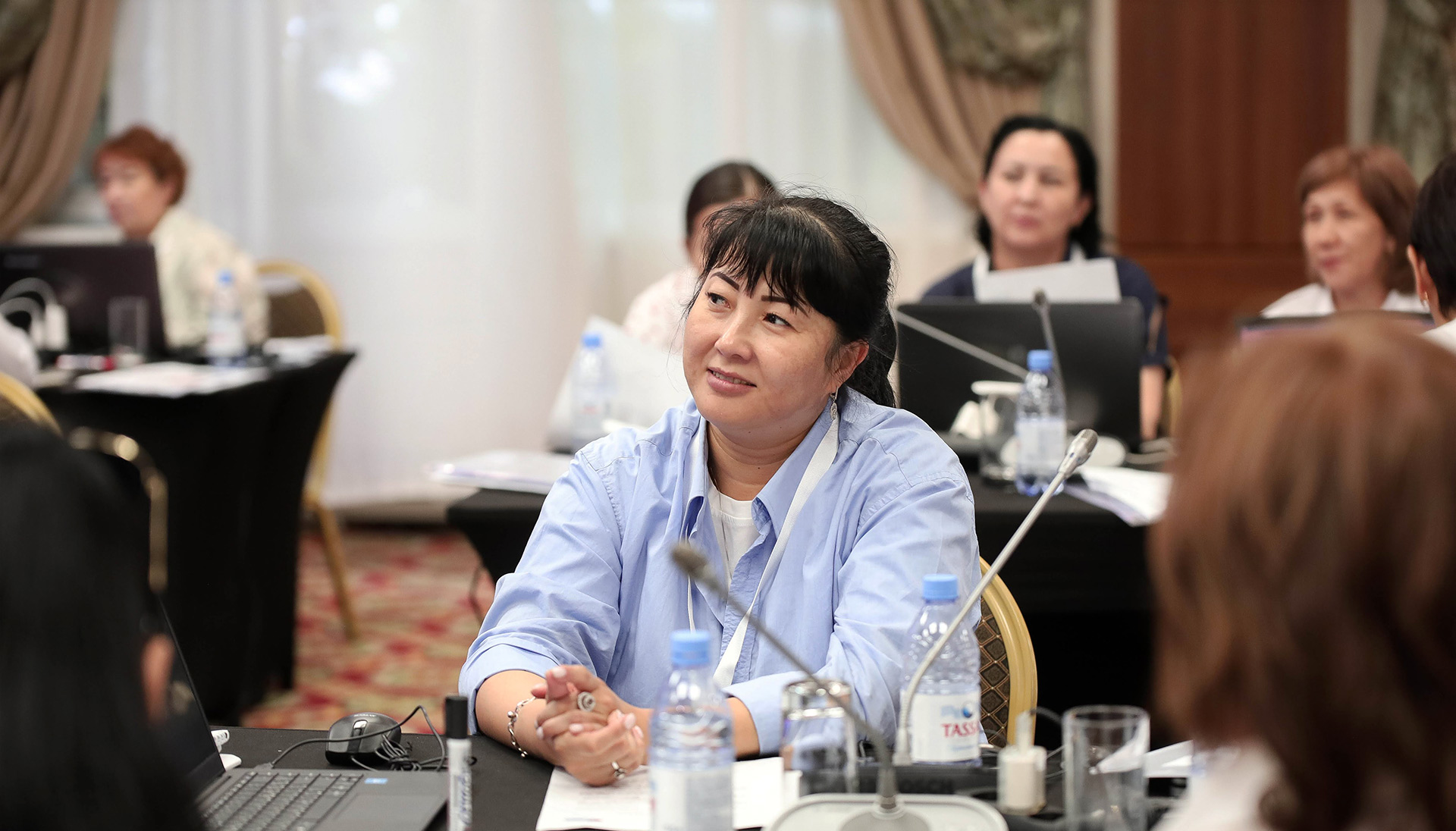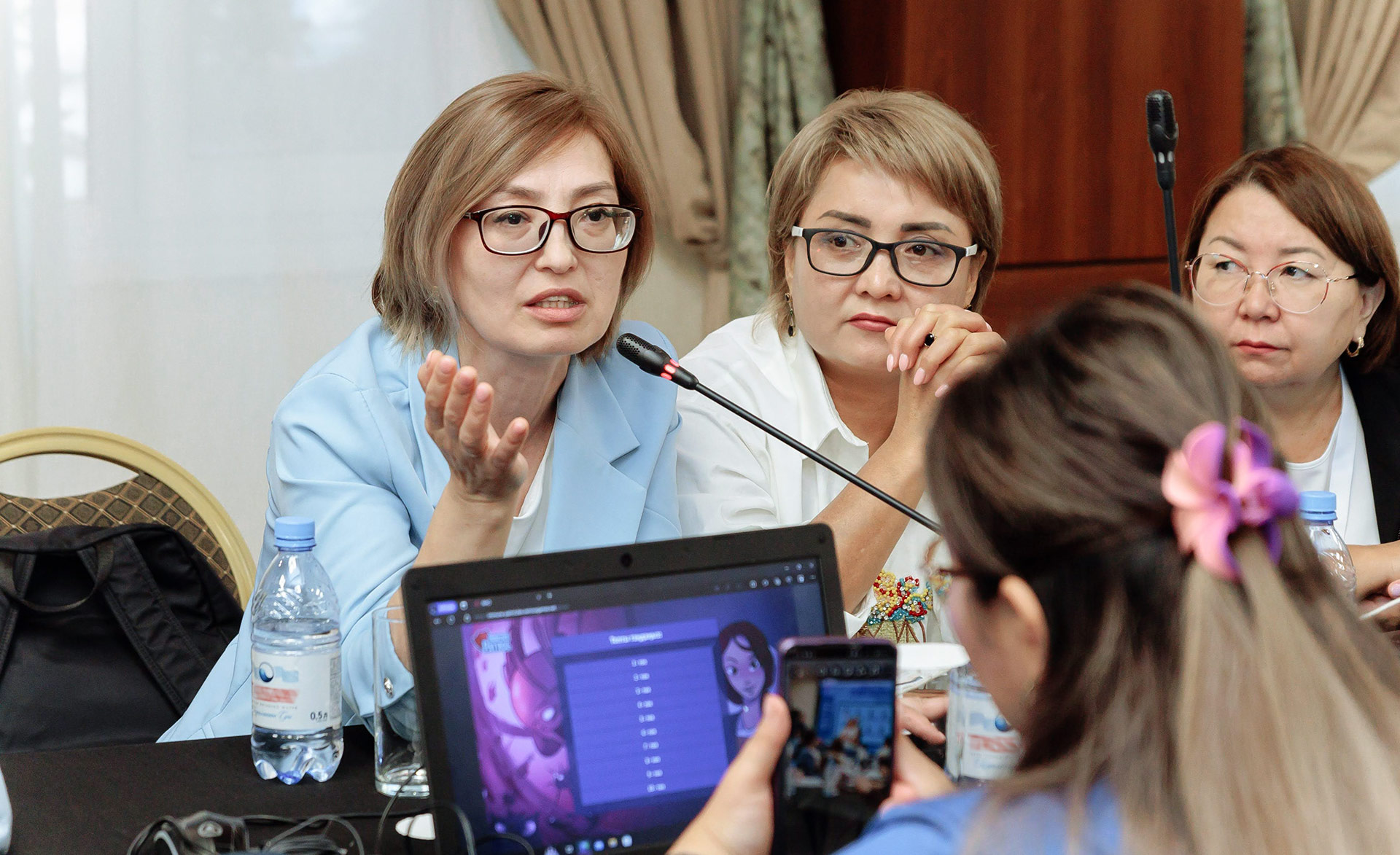Immune Patrol is an education package developed by WHO/Europe in collaboration with experts in immunology, vaccinology and education. Its success in expanding the knowledge and interest of thousands of 10–12-years olds in immunization-related topics has led to the package’s introduction in a growing number of schools across the European Region.
Immune Patrol offers an interactive experience that combines digital games with in-classroom activities to help students understand how the immune system works, how vaccines prevent disease transmission and how to recognize misinformation online. Following its launch in 2023, Immune Patrol has been translated into 14 languages and is in various stages of rollout in 10 countries and Kosovo*, with support from the European Union, Gavi, the Vaccine Alliance, the Bill and Melinda Gates Foundation and Rotary Belgium.
“Immune Patrol doesn’t just deliver facts about vaccines and the immune system – it’s interactive, engaging and it teaches children to think critically about the sources and validity of online information,” says Robb Butler, Director of Communicable Diseases, Environment and Health at WHO/Europe. “This foundation will serve them well in the future as they make health-related decisions for themselves and potentially for their own children.”
Intersectoral engagement
Several major steps are required before the package can be integrated into a country’s primary school curricula. As a first step, planning and policy dialogues take place involving both health and education authorities at national and subnational levels.
In Kazakhstan, a national consultation was convened with the Ministry of Health, Ministry of Education, the National Academy of Education named after Y. Altynsarin, WHO experts and biology teachers from several regions. The meeting served as a platform to review the biology curriculum and identify opportunities for alignment with Immune Patrol content.
Piloting phase
Following agreement on the path forward, the package is translated into local languages to ensure accessibility and inclusivity across diverse communities, and adapted to ensure compatibility with the data infrastructure. In Turkmenistan, the package has been translated into Turkmen (and the Russian language version will also be used) and an offline version has been created to facilitate its use in all schools across the country.
The package can then be pilot-tested to gather feedback from teachers and students and to assess how it fits into the existing curriculum. Children also complete a pre- and post-test to assess the level of their knowledge and confidence in the covered topics before and after completing the modules.
Pilot-testing and evaluation have been completed in Armenia, Georgia, Kazakhstan and the Republic of Moldova, and are ongoing in Belgium (in collaboration with the University of Antwerp), Poland, Uzbekistan and Wales, United Kingdom. Canada is also piloting Immune Patrol, and other countries beyond the WHO European Region have also expressed interest in initiating the process.
Feedback and further rollout
Pilot-testing in schools has generated highly positive feedback from teachers and students. In Georgia, teachers observed that the innovative methodology not only facilitated knowledge acquisition, but also fostered essential functional skills such as critical thinking, collaboration, communication and problem-solving. Moreover, the flexibility of the approach allowed schools to integrate it into both formal lessons and extracurricular activities, expanding its impact.

“I really liked the module about herd immunity. You press the buttons and you instantly see how infection can spread among children, among people, if they are not vaccinated.” Zhansulu Yerubayeva, biology and geography teacher, Astana, Kazakhstan.
Based on the outcomes of the pilot tests, Immune Patrol has become embedded in the national healthy lifestyle curricula in Armenia, and discussion or planning is under way to scale up its integration in the curricula for all schools in Belgium, Georgia and Kazakhstan.

“Immune Patrol is a well-written program. A lot of useful information for children aged 10–12 is quite effectively delivered,” said Zharkyn Tukenova, biology and geography teacher, Astana, Kazakhstan.
International sharing of best practices
The lessons learned from the piloting and integration of Immune Patrol in school curricula can provide inspiration and practical insights for rollout in other countries.
Therefore, WHO hosted a 3-day workshop during which experts and teachers from Armenia and the Republic of Moldova shared their experiences with 40 biology teachers in Kazakhstan. A teacher in Kazakhstan also conducted online training for a group of teachers in Uzbekistan, and 2 biology teachers in Kazakhstan opened their class to a delegation from Tajikistan to allow them to observe how the modules are taught in a classroom setting.
* All references to Kosovo should be understood to be in the context of the United Nations Security Council resolution 1244 (1999).




